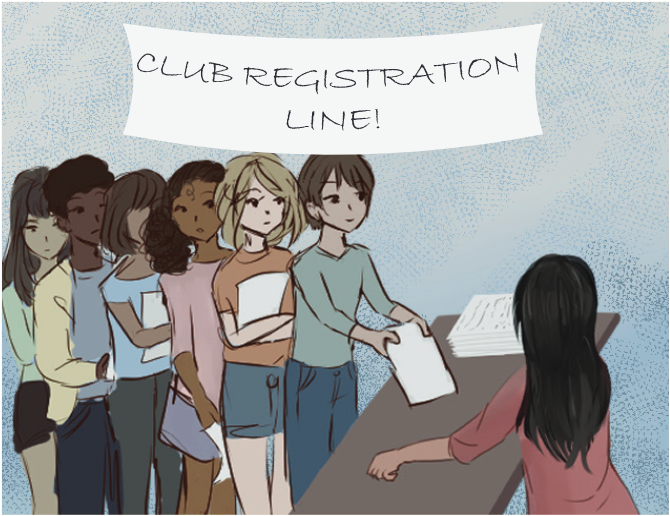By Ryan Ding, Staff Reporter
What are the requirements to start a club?
At Conestoga, the process is relatively simple: all you need are 10 signatures, a sponsor and a meeting place.
While the simplicity of the process helps encourage passionate students to create clubs and explore their interests with friends, it also leaves the door open for others with misguided intentions. Why would anyone waste time creating a club they aren’t interested in? A simple answer: college admissions.
It’s no secret that colleges actively encourage students to found clubs. Take a look at any “Complete step-by-step guide to get into an Ivy” on the internet; colleges value leadership roles or commitments in their applicants, and clubs are some of the best ways to display them. It only makes sense that prospective applicants would want to increase their chances through club creation.
However, some people start clubs with the sole purpose of “founding a club,” and they lack the direction essential to the process. The entire point of college applications should not be to mold yourself to fit the applications — you should be following your own interests and passions, not conforming them to fit specific criteria on a ridiculously long digital form. Yes, founding a club and displaying leadership help develop decision making skills, but it’s unlikely someone will put in enough time and effort to achieve desired results in an extracurricular they aren’t doing out of interest.
In fact, at Conestoga, some club applications are being turned down due to similarities shared with existing clubs. While many of these overlaps are likely unintentional, there’s a reason people want to start their own club instead of joining a related one — they think it looks better to colleges. It doesn’t matter if they must go through the entire process of recruiting members and faculty and build everything from the ground up. It’s just another opportunity to demonstrate leadership, and leadership looks good.
If you’re looking to start a club, consider the following: will you enjoy putting in the work to achieve success? Does this seem like something you genuinely want to do? Are no similar clubs in existence? If your answer to these questions is yes, then feel free to go ahead! Clubs could be extremely valuable when created for the right reasons.
If starting a club isn’t the choice for you, there are several better alternatives to boost your college application. For those who play a sport, organizing fundraisers for your team or helping coach younger players are great ways to spice up your application. If you enjoy any hobbies, you could use them as a creative way to give back to the community.
I’m not saying that clubs themselves are inherently bad. There’s a reason that they are such a large part of high school student life. However, not only are unproductive clubs a waste of students’ time, they take up valuable time and space on faculty schedules.
Ryan Ding can be reached at [email protected].

























































































